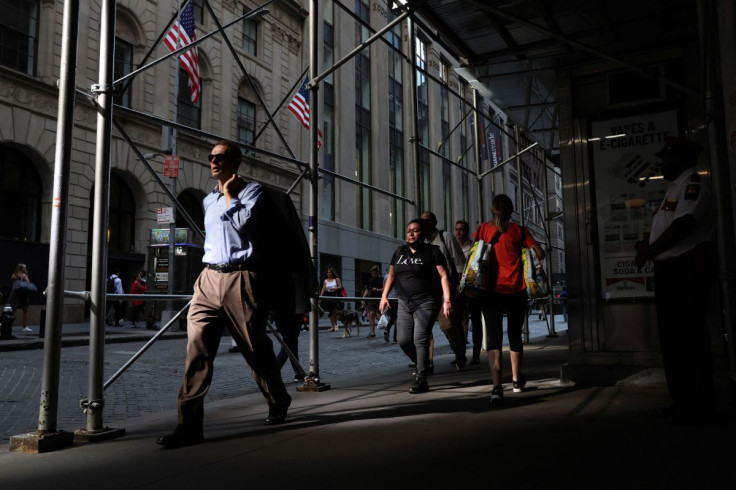U.S. Heat Wave Tightens Its Grip From Coast To Coast

When Long Island, New York resident Jenn Ifer is not working indoors at her COVID-19 testing company, she's spending 10-hour days in Times Square administering PCR tests, a task that has become harder during a heat wave smothering a broad swath of the United States and breaking temperature records.
Some 100 million Americans from New York City to Las Vegas will be under heat warnings this week as temperatures rise well above 100 Fahrenheit (38 Celsius), the National Weather Service (NWS) said on Wednesday. Scientists say these types of weather events will become more frequent with climate change.
"It's crazy," Ifer said as she swabbed nasal passages under a tiny blue tent with only a small air conditioner to keep her cool. "I lose a lot of energy. It's exhausting."
Manhattan temperatures are expected to reach 99 F on Wednesday in the nation's most populous city. Temperatures are also expected to break daily records across Texas, Louisiana and Arkansas on Wednesday, the NWS said.
"Take extra precautions if you work or spend time outside. When possible reschedule strenuous activities to early morning or evening," the NWS said in an advisory for Dallas, where the high temperature was forecast to reach 112 F (44.4 C).
Sweat dripped from 32-year-old Mako Arroyo's face as he collected garbage from a New York City sidewalk on Wednesday. The Clean Space sanitation worker said he pops inside businesses to cool off occasionally along his one-mile route.
"There's nothing else you can do but to stay hydrated. Luckily, on each block there's a store," Arroyo said.
With temperatures expected to reach a blistering 105 F (40.5 C) on Wednesday in Oklahoma City, the zoo is closing early and offering misting and cooling stations for visitors.
Candice Rennels, a spokesperson for the Oklahoma City Zoo and Botanical Garden, said the gorillas were getting air conditioning in their indoor enclosures and elephants and rhinos giant were getting mudpuddles to wallow in.
The zoo was also installing giant fans in barns where animals can retreat from the heat.
And the tigers get popsicles of a sort - ice balls loaded with fish and animal blood, Rennels said.
Air pollution presents yet another health risk in the heat. Pollution from the electric grid can more than double when power stations run full tilt to keep air conditioners running.
In New England, carbon dioxide production soared to 123 metric tons per hour just before 8 p.m. EDT on Tuesday. That was more than double the hourly rate earlier in the day (4 a.m. EDT) of just 58 metric tons, according to estimates by ISO New England, the grid operator for the six-state region.
The U.S. heat wave follows conditions in Europe this week that have touched off wildfires and set record temperatures.
© Copyright Thomson Reuters 2024. All rights reserved.





















